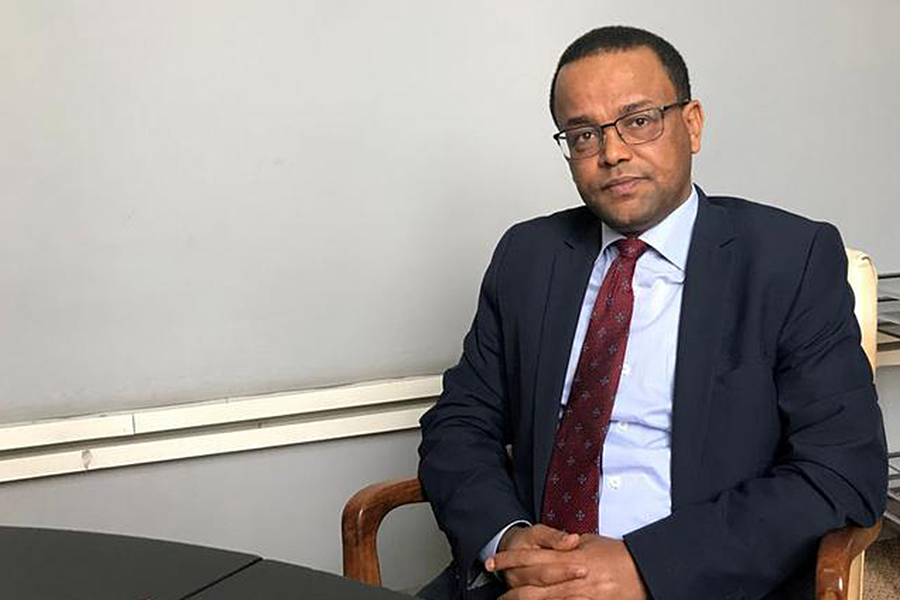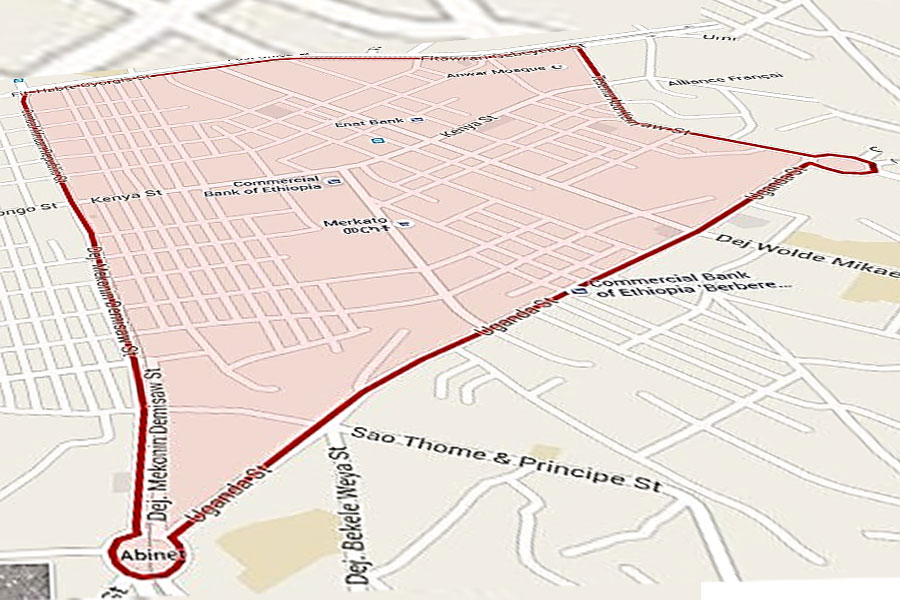
Dec 12 , 2020
By FASIKA TADESSE ( FORTUNE STAFF WRITER )
The Development Bank of Ethiopia (DBE), the state policy bank, has hired three experts to advise Yohannes Ayalew (PhD), the president of the Bank, on matters of policy.
The executive advisors, Digafe Tufa, Eskindir Worku and Hailemariam Nega, were hired on a six-month contract. The advisors will be paid 52,000 Br a month in keeping with the Bank's new salary scale for directors, according to sources familiar with the issue.
Before joining the policy bank, the three experts were working at the Ethiopian Development Research Institute (EDRI) with Yohannes, who was the executive director of the Institute. While working at the Institute, they were seconded by the United Nations Development Programme (UNDP).
The three of them also worked at the National Bank of Ethiopia (NBE) as researchers before they departed a few years ago to pursue their master's degrees overseas. At the time, Yohannes was also working at the central bank as a chief economist and vice governor in charge of the monetary stability cluster. Yohannes assumed the presidency at the Development Bank in mid-September, replacing Haileyesus Bekele. Before he was appointed president, Yohannes served as a board director of DBE, which approved 10.4 billion Br, disbursed 8.54 billion Br, and collected 7.7 billion Br in loans during the past fiscal year.
During the reporting period, the total loan portfolio of the Bank reached 55.7 billion Br, while the NPL ratio declined slightly by 4.6pc compared to the same period of the previous year.
Before bringing the advisors to the Bank, Yohannes requested the approval of the Bank's board of directors, chaired by Tegegnework Getu (PhD), according to Natnael Hailu, acting director of strategy, change & communications at DBE.
They have been brought in to help the Bank and the president to achieve the goals set out in the five-year reform plan, according to Natnael.
Recently, the Bank launched a five-year reform plan, which is a comprehensive way forward that aims to refine the operation of the Bank and address structural drawbacks. Having seven pillars, the reform plan targets to reboot the Bank, support the governance structure, solve structural problems, and reverse the non-performing loans of the Bank, which had reached as high as 40pc two years ago.
As part of the reform plan, the Bank has stopped receiving funds from the National Bank of Ethiopia (NBE) after the regulatory bank repealed an NBE bill directive where 27pc of the gross loans and advances of all private commercial banks were redirected to DBE. The policy bank is instead using alternative sources including development partners and selling bonds to mobilise funds.
Recently, the Bank mobilised its highest value of resources, amounting to 305 million dollars from six institutions, to be used for a project to promote a line of credit and financial services in the rural areas of the country.
After the arrival of Yohannes, the Bank had also been going through a management reshuffling, including the appointment of two vice presidents a few weeks ago. Yilma Abebe was appointed vice president in charge of small & medium enterprise financing, and Sefialem Liben was named vice president of corporate services. However, the Bank, which has seats for five vice presidents, still has two vacant VP posts.
For the current fiscal year, the Bank plans to approve 10.1 billion Br in loans and disburse just over 10 billion Br. It also targets to collect 8.2 billion Br and to reduce the NPL ratio to 25pc.
PUBLISHED ON
Dec 12,2020 [ VOL
21 , NO
1076]

Fortune News | Sep 01,2021

Radar | Jan 07,2023

Fortune News | Oct 24,2020

Fortune News | Apr 13,2019

Radar | May 25,2019

Fortune News | Dec 10,2022

Fortune News | Jan 05,2019

Radar | Aug 03,2019

Radar | Sep 17,2022

Featured | Sep 07,2025

Dec 22 , 2024 . By TIZITA SHEWAFERAW
Charged with transforming colossal state-owned enterprises into modern and competitiv...

Aug 18 , 2024 . By AKSAH ITALO
Although predictable Yonas Zerihun's job in the ride-hailing service is not immune to...

Jul 28 , 2024 . By TIZITA SHEWAFERAW
Unhabitual, perhaps too many, Samuel Gebreyohannes, 38, used to occasionally enjoy a couple of beers at breakfast. However, he recently swit...

Jul 13 , 2024 . By AKSAH ITALO
Investors who rely on tractors, trucks, and field vehicles for commuting, transporting commodities, and f...

Oct 25 , 2025
The regulatory machinery is on overdrive. In only two years, no fewer than 35 new pro...

Oct 18 , 2025
The political establishment, notably the ruling party and its top brass, has become p...

Oct 11 , 2025
Ladislas Farago, a roving Associated Press (AP) correspondent, arrived in Ethiopia in...

Oct 4 , 2025
Eyob Tekalegn (PhD) had been in the Governor's chair for only weeks when, on Septembe...